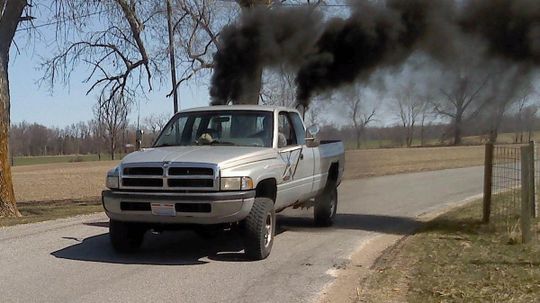Unleashing a cloud of thick black smoke, coal rolling has become an alarming trend that is gaining traction in certain circles. This practice involves modifying diesel trucks to emit excessive amounts of soot and smoke, often targeted at pedestrians, cyclists, or environmental activists. While some may view it as a form of rebellion or expression of personal freedom, the consequences are far-reaching and detrimental to both public health and the environment.
A Disturbing Display of Power
Coal rolling is not just about creating plumes of smoke; it represents a disturbing display of power for those who engage in this behavior. By intentionally tampering with their vehicles’ emissions systems, these individuals seek to assert dominance on the road while disregarding the well-being of others. The act itself embodies an uninhibited disregard for societal norms and demonstrates a lack of empathy towards fellow citizens.
The Environmental Impact
Beyond its social implications, coal rolling poses significant threats to our environment. Diesel engines already contribute significantly to air pollution due to their higher emission levels compared to gasoline engines. However, when modified for coal rolling purposes, these trucks release even larger quantities of harmful pollutants into the atmosphere.
This excess emission includes fine particulate matter (PM), nitrogen oxides (NOx), sulfur dioxide (SO₂), carbon monoxide (CO), and volatile organic compounds (VOCs). These pollutants have been linked to respiratory issues such as asthma attacks and chronic obstructive pulmonary disease (COPD). Moreover, they contribute directly to climate change by exacerbating global warming through increased greenhouse gas emissions.
A Public Health Concern
Coal rolling not only affects our natural surroundings but also endangers public health. The toxic components released during this activity can lead to various respiratory ailments, especially for vulnerable populations such as children, the elderly, and individuals with pre-existing respiratory conditions. The consequences of exposure to these pollutants can be severe and long-lasting.
Furthermore, coal rolling perpetuates a culture that prioritizes personal gratification over collective well-being. It undermines efforts to improve air quality and protect public health by disregarding regulations put in place to safeguard communities from harmful emissions.
Conclusion
In conclusion, coal rolling is an alarming trend that not only showcases a lack of consideration for others but also poses significant risks to both our environment and public health. As responsible citizens, it is crucial that we condemn such behavior and advocate for stricter regulations against tampering with vehicle emissions systems. By doing so, we can work towards creating cleaner air and healthier communities for all.


